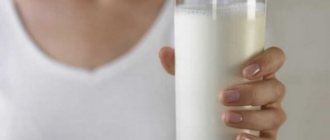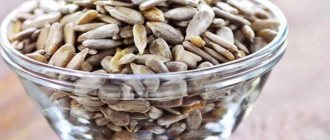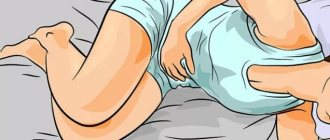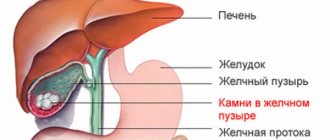Overeating can be accompanied by several unpleasant consequences, and most often they occur simultaneously.
- Feeling of fullness in the stomach, pressing pain, in rare cases - cutting;
- Belching;
- Heartburn;
- Bloating, increased gas production;
- General weakness, often accompanied by nausea and drowsiness.
The situation is aggravated if you overeat not just one product, but too many types of dishes that do not combine with each other, as well as with the parallel use of alcohol, even in small doses.
For a healthy body, the consequences will not be very serious, however, if there are problems in your body, it will be difficult to cope with the symptoms of overeating naturally. Unpleasant sensations can last for several hours, and sometimes even make themselves felt the next day: the consequences of overeating can be similar to a hangover.
Causes of nausea from fatty foods
Vomiting is usually preceded by a condition called nausea.
This sensation is regulated by the center of the brain. If a person has eaten too much and feels sick, the reason is clear. When there is an excess of food, the brain receives a signal from the receptors of the stomach and “gives an order” to reduce the tone of its walls. At the same time, the area of the duodenum becomes tense. The sphincter (valve) between the esophagus and stomach relaxes. The contents are easily thrown into the esophagus, causing heartburn. Fatty food means fatty meat, fast food with cheese, French fries, chips, lard, cakes. A large portion of such food is difficult to digest. This requires a lot of gastric juice, pancreatic enzymes, and bile. As a result, food stays in the stomach and intestines for a long time. Stagnant undigested food causes an unpleasant pulling or sucking feeling in the epigastric region.
Vomiting occurs, after which it becomes easier. This indicates poor nutrition or overeating.
Similar symptoms appear in a healthy person after drinking alcohol with a fatty snack. The stomach is not able to digest large amounts of heavy food and alcoholic drinks.
In case of poisoning
If a person has eaten too much fatty, stale or poorly prepared food, nausea is one of the symptoms of food poisoning. This usually applies to expired products and homemade canned goods.
In food poisoning, the stomach lining is irritated by bacteria. Microorganisms and the toxins they release, circulating in the blood, cause intoxication, one of the symptoms of which is nausea.
Vomiting is regarded as a protective reflex that frees the body of toxins and prevents their further absorption. Heaviness in the stomach and nausea persist until the person, through vomiting, frees himself from poor-quality food.
From the medicine
Nausea is often caused by side effects of medications that irritate the gastric mucosa:
- antibiotics;
- Aspirin (in tablets or soluble form);
- hormonal medications;
- iron-containing preparations;
- poisonous homeopathic remedies;
- non-steroidal anti-inflammatory tablets – Ibuprofen, Diclofenac;
- vitamin complexes.
If you feel sick during a course of medication, you should read the instructions for use of the drug. Follow the method of use and storage conditions; consider the expiration date. Most tablets are taken after meals. The medicine leaflet contains information about side effects.
Gastrointestinal diseases
In some diseases, adults cannot digest certain food components. The causes of nausea after a fatty meal are most often gastrointestinal diseases:
- cholelithiasis;
- hepatitis;
- peptic ulcer;
- cholangitis;
- enteritis;
- cholecystitis;
- biliary dyskinesia.
- intestinal dysbiosis;
- pancreatitis;
- erosive gastritis;
- gastroduodenal reflux.
If you feel sick after eating something fried, the reason lies in the dysfunction of the gallbladder. In healthy people, in response to food intake, bile is secreted, containing enzymes for digestion. When there is blockage or spasm of the bile ducts, juices either do not enter the intestines at all or enter in small quantities.
As a result, undigested food stagnates in the stomach, causing nausea followed by vomiting. In this case, the person feels better after freeing himself from the food bolus.
If your stomach hurts after eating fatty foods, the cause is gastroesophageal reflux disease (GERD). The problem with this pathology lies in the insufficiency of the valve between the esophagus and the stomach. The muscle ring does not close completely. Heavy food in the form of, for example, fatty pies is not digested, which causes nausea. The stomach reflexively throws stagnant food into the esophagus along with acid, which causes heartburn.
Bad things happen after fatty foods with appendicitis. Nausea and vomiting are accompanied by pain in the right half of the abdomen, which radiates to the lower back or navel. Sometimes the temperature rises.
I always feel sick after oily fish and drinking alcohol with pancreatitis. The pancreas produces enzymes for digesting food - amylase, lipase, trypsin. If the outflow is disrupted, the juice remains inside the organ and does not enter the intestine. In this case, enzymes digest gland tissue, causing inflammation. After eating fatty fish or meat, severe abdominal pain, nausea, and vomiting occur.
If you experience frequent nausea after fatty foods, you should be examined by a gastroenterologist.
Intestinal infections
Rotavirus infection manifests itself as a combination of intestinal and respiratory syndrome. Since the initial signs of the disease are a sore throat and accompanied by an increase in temperature, the pathology in everyday life is called intestinal flu. In the advanced stage of the disease, abdominal colic, nausea, vomiting, and frequent diarrhea occur.
Transmitted diseases are treated by an infectious disease specialist. You should contact him for abdominal pain with fever, nausea and vomiting.
Pregnancy
Nausea in expectant mothers often occurs due to increased acidity of gastric juice. The reason is the pressure of the fetus on the digestive organs - the stomach and intestines.
Vomiting after fatty foods occurs due to toxicosis in pregnant women. More often, this condition occurs in the early stages of pregnancy. Women feel disgust even at the sight of fatty foods or onions. Most people react to different smells. To reduce nausea, it is recommended to eat fruits and nuts.
Preeclampsia develops in late pregnancy. Called late toxicosis, it is accompanied by increased blood pressure, edema, and the appearance of protein in the urine. This condition may also be accompanied by nausea and vomiting at the sight or smell of fatty foods.
Treatment is carried out only in a hospital setting.
Nausea after fatty foods if a person has disorders of the vestibular system. The gag reflex occurs when abruptly getting out of bed or taking a horizontal position immediately after a meal.
The problem is accompanied by dizziness, tinnitus, loss of balance, and visual disturbances. The condition is relieved by drinking water and lemon juice.
Diet errors
Nausea after fatty foods sometimes occurs as a result of an unhealthy lifestyle. Usually in this case the rules of nutrition and cooking are violated:
- snacks on the go with sandwiches with butter and cheese;
- abuse of fast food, sunflower seeds;
- overeating eggs, full-fat milk;
- eating large amounts of lard;
- the predominance of fatty, fried and spicy foods, sweet dishes in the diet;
- lack of diet;
- not fully cooked or fried meat food;
- excessively cold or hot coffee, tea.
Poor nutrition and lack of routine are the main causes of gastritis, ulcers, cholecystitis, and stomach cancer.
What to do if your child has eaten too much
Treatment of a child with overeating has the following scheme:
- If the baby doesn't feel well, let him lie down for a while.
- You need to make sure your child drinks plenty of fluids. Chamomile or any other herbal tea or water with lemon are suitable drinks.
- If it does not improve, you should take an enzyme preparation.
- The next day you need to follow a gentle diet, eat cereals, fruits and vegetables, excluding sweets, fatty and fried foods.
If after taking the measures the baby does not feel better, you should consult a doctor.
Nausea often occurs due to eating large amounts of fatty foods. So, a large portion of kebab at night or fried meat with sauce can cause nausea. What to do in such cases?
Some people believe that by inducing vomiting they can get rid of nausea, but this can only worsen the problem, as the acid balance is disrupted, which can only be restored over time with the help of special lactic acid bacteria. However, if you understand that you cannot solve the problem in any other way or alcohol poisoning has occurred, vomiting is a very effective way to get rid of nausea.
If you overeat at night and suffer from nausea, taking special medications helps, the main purpose of which is to facilitate the digestion process. Such medications include Pancreatin, Mezim, Gastal and Almagel. If you overuse fatty foods, activated charcoal can also help. It makes no sense to drink it together with other medications, since charcoal, being a sorbent, neutralizes the effect of all medications taken.
The next day, it is best to do a little unloading for the stomach, consuming only low-fat kefir. If the stomach continues to hurt, begins to swell, and increased gas formation appears, you can do a cleansing enema.
Symptoms of nausea
Manifestations of individual diseases are associated with a damaged organ, but there are general symptoms:
- heaviness in the stomach;
- nausea;
- vomit;
- intestinal colic;
- heartburn;
- feeling of fullness in the stomach;
- bloating.
If pain is felt around the navel, accompanied by vomiting or diarrhea, this indicates food poisoning or an infectious disease. Intoxication in these diseases is accompanied by the following symptoms:
- weakness;
- headache and muscle pain;
- temperature increase.
Pancreatitis is manifested by nausea, sharp pain radiating to the right hypochondrium or back. Inflammation of the pancreas is characterized by sudden weight loss and unstable stools.
What to do if you eat a lot of sweets
Magnificent holidays always end with a sweet table, which also amazes with its variety - there are chocolates, cakes, and cookies. How can you resist and not start trying everything? What to do if you have too much sweets?
In this case, the next day the diet should be more than gentle; it is best to either eat apples or drink kefir all day. It is also important to drink plenty of water. This is due to the fact that it is necessary to restore the functioning of the pancreas and liver, which took the “brunt” of the abuse of sweet foods.
First aid for nausea from fatty foods
In case of poisoning, there is no need to get rid of nausea. On the contrary, you need to induce vomiting.
To do this, you need to take the following measures:
- Drink 3-4 glasses of warm water with soda, press on the back third of your tongue. Repeat gastric lavage 2-3 times until clean lavage water comes out.
- Take 4 tablets of activated carbon or Enterosgel to prevent the absorption of bacteria and poisons.
- Then drink small amounts of bottled water regularly.
- To restore electrolytes, you will need to take dissolved Glucosolan or Regidron powder.
If symptoms do not go away after the measures taken, call an ambulance. It is possible that poisoning is associated with the ingestion of toxic substances or dangerous bacteria into the body. Nausea may be a sign of appendicitis. If the ambulance is called late, the appendix may burst with the development of peritonitis.
What to do if you ate a lot and your stomach hurts
What to do if you overate and have a stomach ache? In such a situation, you should not rush to take medications, because sometimes folk remedies can save you. So, among the most effective ways to get rid of the consequences of overeating are mint and chamomile tea. Homemade mint candy will also help - add a drop of peppermint essential oil to a sugar cube. The lollipop must be slowly dissolved, and relief will not be long in coming.
A warm heating pad can also help relieve abdominal pain and should be applied for 20 minutes. You can also use a warm water bottle instead of a heating pad.
If you feel that your stomach is starting to hurt because of overeating, you need to lie down for a while. It is necessary to breathe deeply, as intense work of the abdominal muscles promotes rapid digestion of food.
Treating nausea from fatty foods
Help for nausea after fatty foods varies depending on the underlying disease:
- For peptic ulcers and gastritis, Motilium and Cerucal relieve nausea. These drugs stimulate the motor function of the stomach and intestines, moving food to the exit.
- Unsweetened tea with mint, ginger, and lemon helps reduce nausea after overeating.
- The enzymes Panzinorm and Pancreatin, as well as the proton pump inhibitors Pantoprazole and Omeprazole, help neutralize fatty foods in the stomach.
- In cases of vestibular dysfunction, motion sickness or seasickness, nausea is relieved by the drug Dramamine.
- Stressful nausea is relieved by the tranquilizer Tazepam or sedative herbal remedies - motherwort, valerian.
Meals for nausea should be divided, in small portions. The intervals between meals are usually 4 hours. Drink more water to normalize the balance of essential electrolytes in your body. Liquid promotes better digestion of food.
Do not indulge in carbonated drinks, strong tea and coffee. Clockwise abdominal massage and exercises help the digestive organs.
THE NEXT DAY
The most important task the day after overeating is to return to normal, “non-holiday” loads on the digestive system. Instead of reaching for half-eaten cake in the morning, it's better to have a healthy, whole-ingredient breakfast that contains healthy fats, protein, and vegetables and fruits.
Even if you feel that “after yesterday” your clothes have become a little tight, you should not sharply limit yourself in calories and skip regular meals, but it is better to give preference to light meals. Drastically restricting your food intake will create a strong appetite and can push you into a new abyss of overeating.
The next day, it is useful to give the body some kind of physical activity, at least minimally - for example, go shopping for holiday purchases. Positive emotions will help you get through the day “after yesterday.” And at the end of the day, listen to your body and feel - it is begging you not to overeat during the next holiday!
Nausea in children
The vomiting center in children is very sensitive to various odors and unusual tastes. Cause of nausea:
- Intestinal infections caused by rotavirus or enterovirus, pathogenic Escherichia coli, salmonella. The source of infection is a sick person, dogs, cats, tap water, toys.
- Food poisoning occurs when eating food contaminated with microbes, especially dairy products. This happens when using expired products or when storage rules are violated.
- Acute respiratory diseases not directly related to the stomach - bronchitis, pneumonia.
Nausea can be caused by a disease of the nervous system, brain tumors, or appendicitis.
Children's overeating
I would especially like to highlight overeating in children, because we, adults, are to blame for the existence of this problem. According to scientists, a child’s food center is clearly regulated by nature; the baby strives to sit down at the table only if he is really hungry, until adults make a serious mistake: they start forcing the child to eat. Can we avoid this? Of course, children should be given the opportunity to choose, including in food. He doesn’t want to, he doesn’t need to! Our children can often get sweets by deception, especially from grandmothers, then they have a stomach ache, nausea, and sometimes vomiting. What to do in this situation? Try to explain the dangers of sweets and give real-life examples.
Prevention
In the absence of diseases, to prevent nausea from overeating, it is enough to eliminate provoking factors or bad habits:
- reduce the consumption of fatty, fried foods, marinades;
- eat food 5 times a day, but little by little;
- do not “seize” the problem so as not to cause overeating;
- during pregnancy, spend more time outdoors;
- give up carbonated drinks;
- have dinner no later than 2.5 hours before bedtime;
- take your time at the table, chew your food thoroughly;
- After a hearty lunch, do not lie down, but take a walk.
If the problem is related to overeating, these measures are enough to avoid nausea. For diseases of the digestive system, these measures will help prevent the occurrence of the gag reflex.
Since nausea is often a symptom of a disease, it is important to identify and eliminate the cause. To do this, you need to be examined by a gastroenterologist. If the disease is not detected, the doctor will recommend eliminating the provoking factors.
Overeating is a problem that every person probably faces: everyone loves to go to events where there is a lot of tasty food, which is not always healthy.
There are several ways to help relieve poor health caused by eating too much food.











